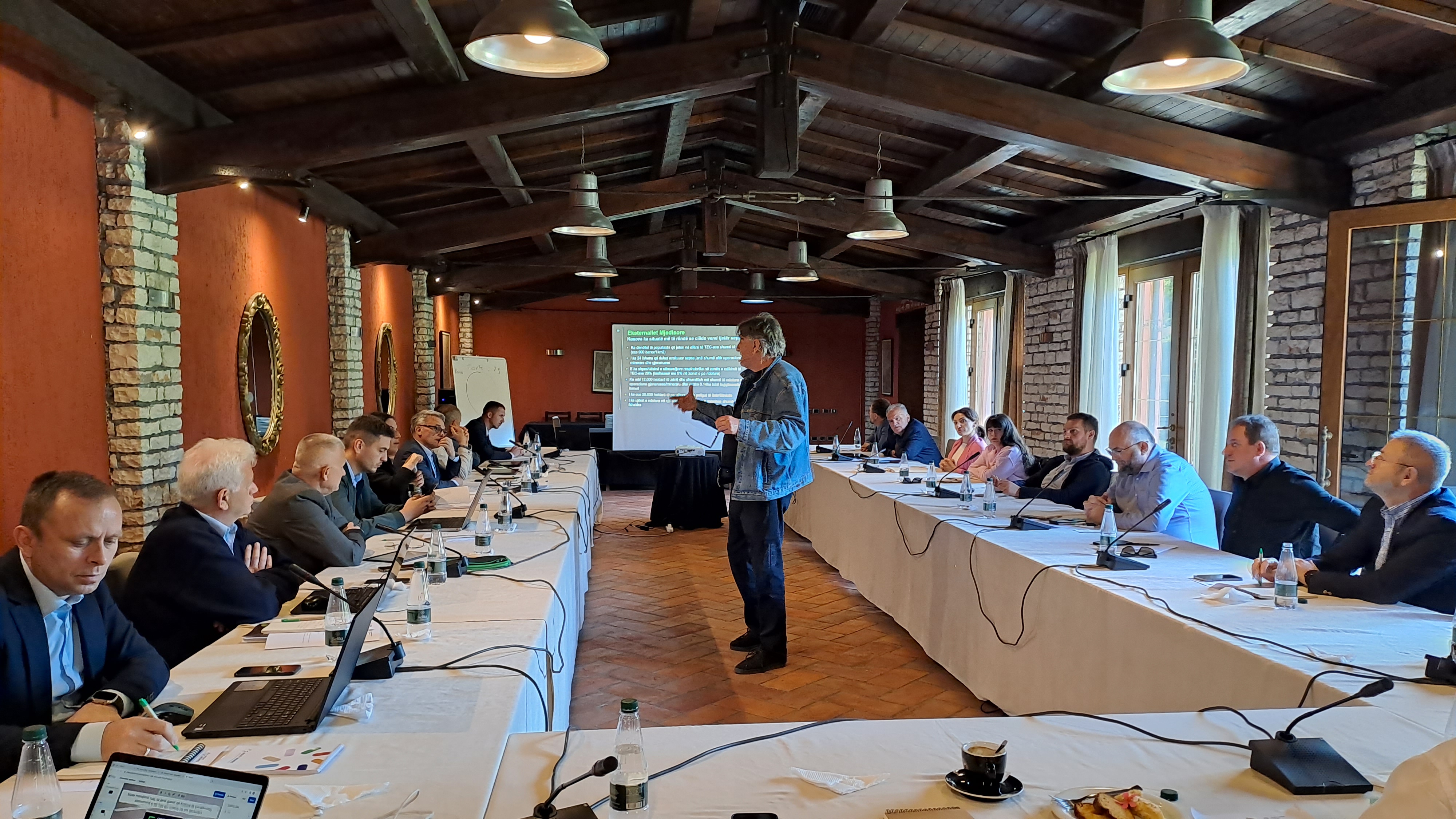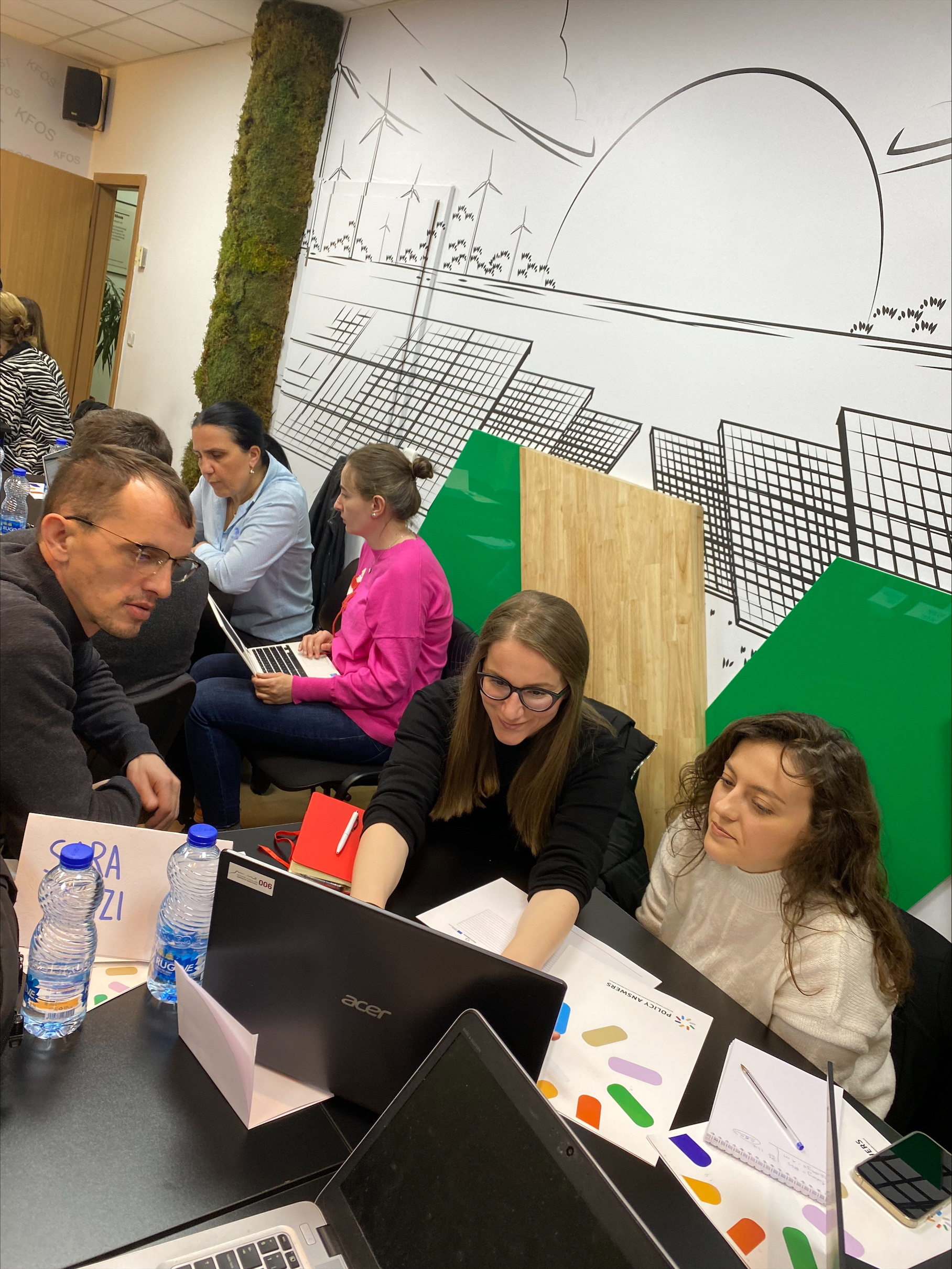Riinvest Institute published today “Women in the workforce” report, in an event where it was discussed on women’s role in the economy, and where the findings from this survey and report were presented.
The report presents the findings of the survey with 600 employed women, the first of this type in Kosovo.
Riinvest Institute’s executive director, Alban Hashani, emphasized the importance of women’s inclusion in the economy.
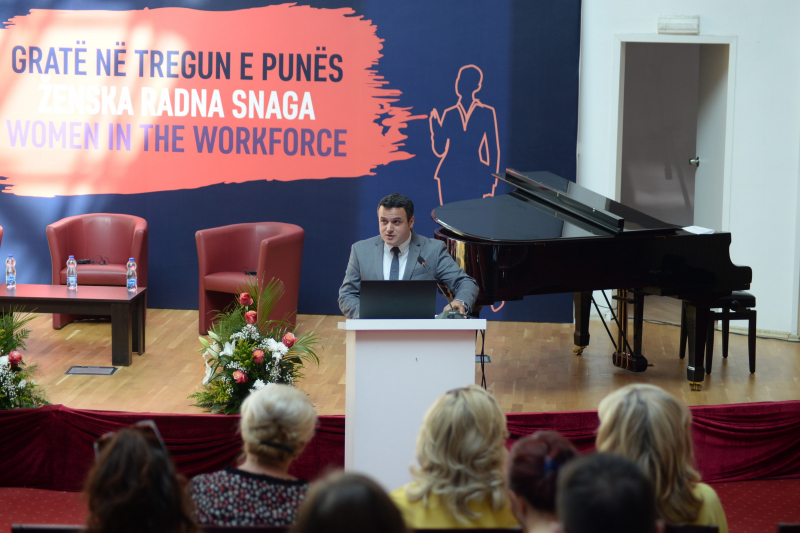
“The barriers which women face in the workforce are plenty, starting from the low level of salaries, to the limited opportunities for suitable work,” he declared. Hashani added that the report highlights noticeable differences between working conditions in the public sector and private sector, which is concerning.
Dita Dobranja, researcher at Riinvest Institute, declared that based on Riinvest’s survey, 54 percent of women are employed in the private sector, compared with 41 percent employed in the public sector.
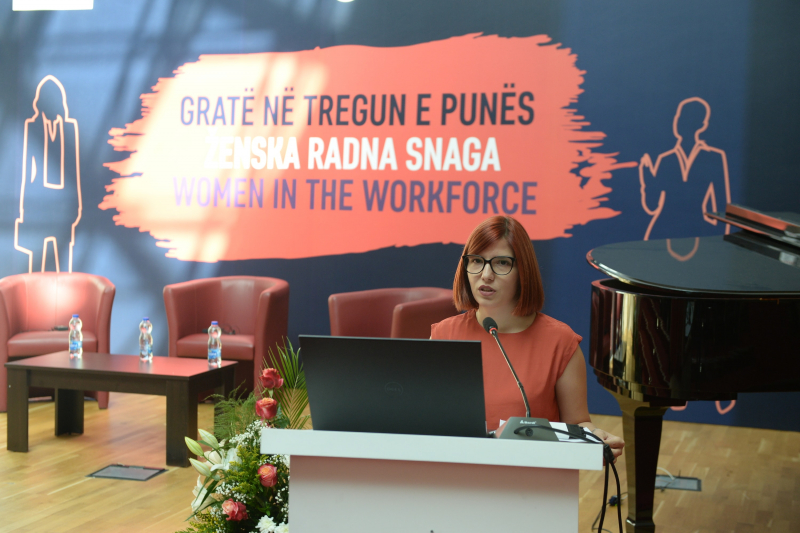
“Differences between sectors are noticed in the salary level, where in the private sector average salary is 329 EUR, or 100 EUR lower that the average salary in the public sector, reported at 443 EUR. Such differences exist also in the education level, and in the working conditions” declared Dobranja.
Kosovo Republic’s 4-th President, Atifete Jahjaga, re-emphasized that the work towards women’s empowerment is long, and the changes are very small, proving concerns for gender inequality in Kosovo.
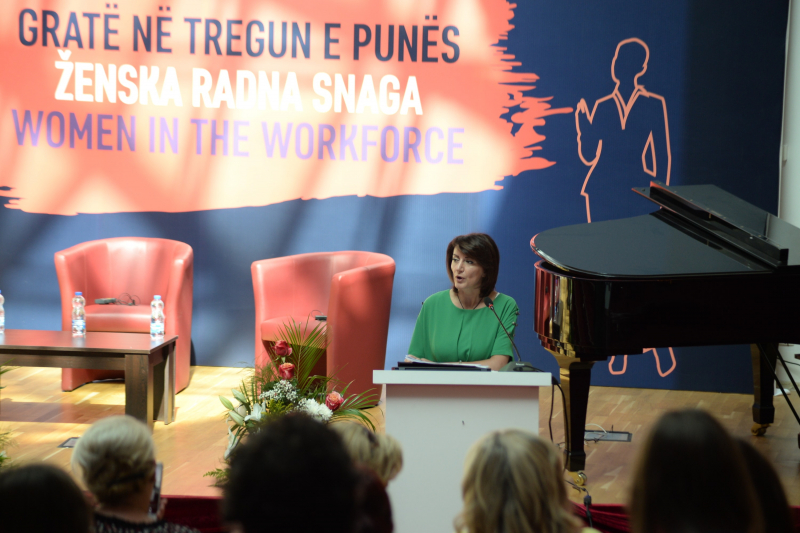
“Unfortunately women is still not seen as equal among her men colleagues. Girls are encouraged from their families to pursue easy professions, known as women’s professions, and are discouraged to follow professions such as firefighter, police, manager, thus depriving them also from decision making positions”, declared Jahjaga.
Miranda Jolicouer, acting director of the Office for Democracy and Governance at USAID Kosovo, declared that we cannot force women to choose between work and family, since women are needed for both.
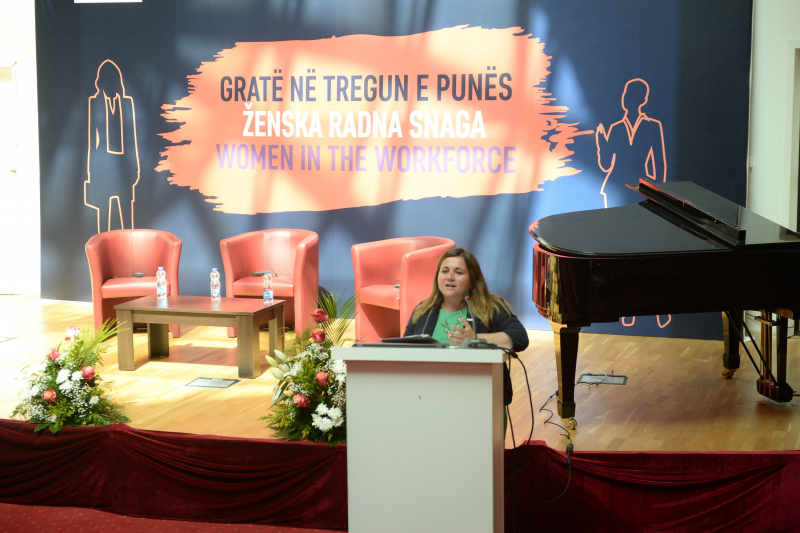
“The inclusion of women in the working-force is an economic problem that should be concerning everyone, not only those present in this room”, she declared.
Panelist Luljeta Demolli, executive director of Kosovo’s Center for Gender Studies, said that there must be decisiveness from the institutions for gender integration, in a way that the gender aspect to be included and addressed by institutional strategies.
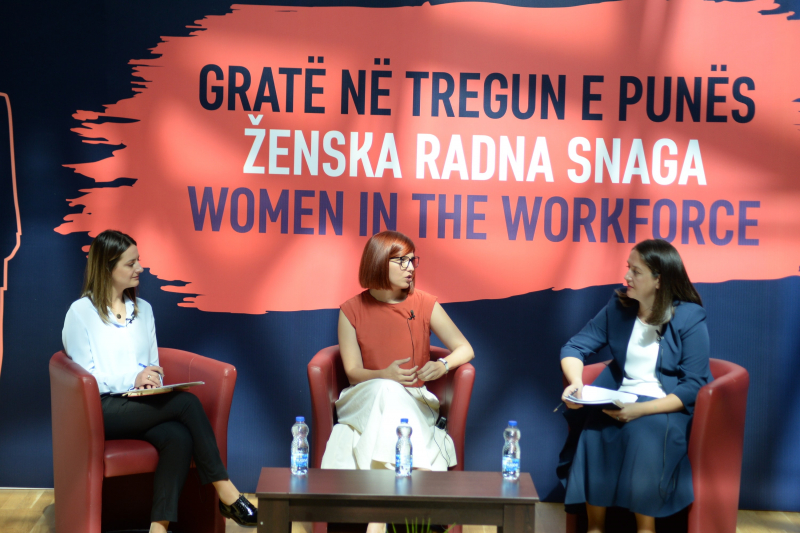
According to Rezarta Delibashzade, from D4D institute, it is important to analyze the reasons of non-activating the women in the labor market, which very often are related with the lack of public infrastructure, for the care on children and elderly – as a nursery and day care for the elderly.
The roundtable discussion was organized as part of the project “Women’s Economic Forum” financed by USAID, through ATRC.

